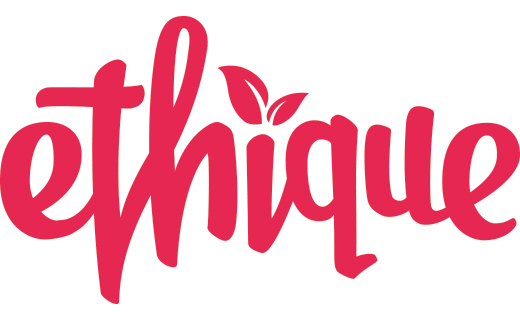

Ethique

Canterbury Region, New Zealand
July 2015
Personal care products
Manufacturing
New Zealand
In 2012 Ethique started making unique formulas from their kitchen in Christchurch, New Zealand. With their knowledge of chemistry & biology Ethique wanted to create better cosmetics & they weren’t afraid to do things differently. Ethique has now outgrown the kitchen and set up in their lab. But their core guiding principle remains the same: healthy products, made with sustainable, naturally derived ingredients. Ethique was started because hair & skin care needed a shake up: simple, concentrated & sustainable products that deliver on results, without the packaging. Bars are the answer – no bottles, no harsh chemicals, just good things in high concentration. They're all about taking beauty products & making them super dense. Each bar is packed full of only good things that will work to bring out the best in your skin & hair. Why bars? Solid cosmetics have loads of benefits. They last for ages because they’re so concentrated – one bar of Ethique can last as long as five bottles of its liquid relative. And because there’s no water, Ethique doesn’t contain preservatives. ‘First do no harm’ is Ethique's priority, and they do that by making solid formulas. For Ethique, sustainability runs deep. They started making beauty products because they know they can be made better.
Overall B Impact Score
Governance 9.7
Governance evaluates a company's overall mission, engagement around its social/environmental impact, ethics, and transparency. This section also evaluates the ability of a company to protect their mission and formally consider stakeholders in decision making through their corporate structure (e.g. benefit corporation) or corporate governing documents.
What is this? A company with an Impact Business Model is intentionally designed to create a specific positive outcome for one of its stakeholders - such as workers, community, environment, or customers.
Workers 24.9
Workers evaluates a company’s contributions to its employees’ financial security, health & safety, wellness, career development, and engagement & satisfaction. In addition, this section recognizes business models designed to benefit workers, such as companies that are at least 40% owned by non-executive employees and those that have workforce development programs to support individuals with barriers to employment.
Community 47.1
Community evaluates a company’s engagement with and impact on the communities in which it operates, hires from, and sources from. Topics include diversity, equity & inclusion, economic impact, civic engagement, charitable giving, and supply chain management. In addition, this section recognizes business models that are designed to address specific community-oriented problems, such as poverty alleviation through fair trade sourcing or distribution via microenterprises, producer cooperative models, locally focused economic development, and formal charitable giving commitments.
What is this? A company with an Impact Business Model is intentionally designed to create a specific positive outcome for one of its stakeholders - such as workers, community, environment, or customers.
Environment 32.4
Environment evaluates a company’s overall environmental management practices as well as its impact on the air, climate, water, land, and biodiversity. This includes the direct impact of a company’s operations and, when applicable its supply chain and distribution channels. This section also recognizes companies with environmentally innovative production processes and those that sell products or services that have a positive environmental impact. Some examples might include products and services that create renewable energy, reduce consumption or waste, conserve land or wildlife, provide less toxic alternatives to the market, or educate people about environmental problems.
What is this? A company with an Impact Business Model is intentionally designed to create a specific positive outcome for one of its stakeholders - such as workers, community, environment, or customers.
Customers 3.7
Customers evaluates a company’s stewardship of its customers through the quality of its products and services, ethical marketing, data privacy and security, and feedback channels. In addition, this section recognizes products or services that are designed to address a particular social problem for or through its customers, such as health or educational products, arts & media products, serving underserved customers/clients, and services that improve the social impact of other businesses or organizations.